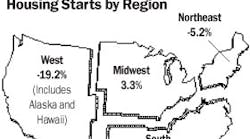A proposal by the California State Treasurer's Office has sparked some discussion in electrical industry circles about how it could affect companies with offshore headquarters, such as Cooper Industries and Tyco International. Both companies are reincorporated in Bermuda.
According to a press release issued July 25, California State Treasurer Phil Angelides has proposed prohibiting business dealings with publicly held U.S. corporations that relocate offshore — in name only — “to avoid paying taxes and to skirt legal protections for investors.” Angelides is also proposing that the California Public Employees' Retirement System (CalPERS) and California State Teachers' Retirement System (CalSTRS), the state's giant pension funds, stop investing in or otherwise doing business with “these U.S. corporations that expatriate.”
The actual impact of the proposal is yet to be seen, according to a spokesperson for Cooper Industries.
“He would have to go before individual boards and try to move this policy forward,” he said. “At this point, it remains very speculative about what the total impact would be.” Cooper continues to be a significant employer in the U.S., he said.
Tyco, who is also named in the press release as one of the companies that would be impacted by the state proposal, if adopted, did not return phone calls.
The Treasurer's Office said a policy has been implemented in its office that makes publicly held U.S. corporations that relocate offshore ineligible for funds from the state's $45-billion Pooled Money Investment Account (PMIA). The PMIA is comprised of state and local taxpayer funds, over $10 billion of which is invested in corporate securities that must be on a state-approved list.

